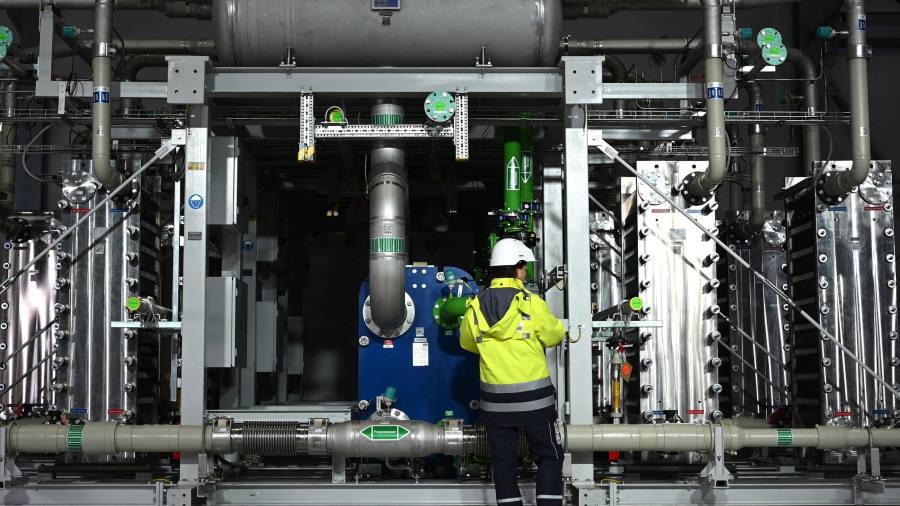Germany has fallen into recession with revised figures showing gross domestic product in Europe’s largest economy shrank in the first quarter of the year.
Destatis, the federal statistical agency, said the German economy contracted 0.3 per cent in the three months to March, adjusting its initial estimate of zero growth. Some economists had expected the fall after German industrial production suffered its biggest drop for 12 months in March.
A second consecutive quarterly decline in GDP — after a downwardly revised 0.5 per cent contraction in the final quarter of last year — meets the definition of a technical recession.
The main cause of Germany’s disappointing performance in the first quarter was a drop in household consumption, which fell 1.2 per cent from the previous quarter, as high inflation eroded people’s purchasing power.
“The reluctance of households to buy was apparent in a variety of areas: households spent less on food and beverages, clothing and footwear, and on furnishings in the first quarter of 2023 than in the previous quarter,” Destatis said in a statement.
Car sales in Germany fell, reflecting a reduction in grants and subsidies on purchases of plug-in hybrid and electric vehicles since the start of the year.
German government spending was also 4.9 per cent lower. But private sector investment rebounded in the first quarter from a weak second half of 2022, driven up 3.9 per cent by higher construction activity that reflected mild weather.
Trade made a positive contribution as German imports fell 0.9 per cent and exports rose 0.4 per cent in the first quarter.
Germany is expected to be the weakest performer among the world’s big economies this year, according to the IMF, which forecast the country’s output would shrink 0.1 per cent.
The downturn in the past six months means German GDP is still languishing below pre-pandemic levels, unlike the overall eurozone economy. Destatis said first-quarter output was down 0.5 per cent from a year earlier.
Consumers in Germany have been hit by higher inflation and rising borrowing costs, which contributed to a 8.6 per cent drop in retail sales in March from the same month a year ago, after adjusting for inflation.
German companies are becoming more gloomy about the year ahead, according to the Ifo Institute’s index of business confidence, which fell in May for the first time in seven months.
Europe’s biggest economy has been hamstrung by weakness in its sprawling manufacturing sector, which is suffering from lower factory output, plummeting demand, weak exports and a shrinking backlog of orders.
In the first quarter, manufacturing output rose 2 per cent from the previous quarter, but Destatis said there had been “a dampening effect in March”. Growth was weaker in the larger services sector, it said.
Read the full article here




